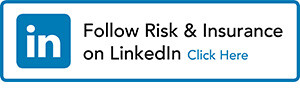New Jersey-based World Insurance, LLC is in the middle a rebrand. It’s also making some noise on the acquisitions front.
Founded in 2011 with just five partners, the brokerage firm, now backed by Boston-based Charlesbank, has since completed 102 acquisitions and is still in the hunt, with acquisition targets averaging in the $3 million to $5 million range.
Its product mix falls roughly at 60% commercial lines, 15% personal lines with an additional 20% or so in employee benefits.
Frank Costa, the company’s chief operating officer, conversed with Risk & Insurance® on the company’s strategy, its appetite for acquisition and what the future holds. The following is a transcript of that question-and-answer session, edited for clarity and length.
Risk & Insurance: It sounds like you’ve been in acquisition mode for a while now, correct?
Frank Costa: We have and I’m happy to share that evolution with you. One of the reasons we’re very heavy on the commercial side is because our early acquisitions were what you would expect. They were smaller community-based and independent agencies.
Typically, they didn’t have a perpetuation plan. The owner is a baby boomer, his kids or her kids aren’t interested in insurance. That was a big part of our initial business. And we were making smaller acquisitions, books of business somewhere in the $300,000 revenue range to a million dollars. And we plodded along in that way. And frankly, anything that came our way, we would try to make it work.
Fast forward, we’ve completed 102 acquisitions since. There’s been a very intense surge in acquisitions in the last two and a half years. And in the last year, with the funding from Charlesbank, the dynamics now are much different.
Today we are extremely selective. We really want to have that prime book of business. Our transactions are much larger and include expanded territories. Our average transactions range between three and five million dollars in revenue. Our largest acquisition ever was April 1st, that was a $30 million acquisition.
R&I: Which acquisition was that?
FC: That acquisition was Scottish American. They have a presence in 14 states. We have a pipeline right now where we’ll probably complete another 30 acquisitions easily this year.
So from an original $850,000 book of business, our firm now has grown to a run rate of over $250 million in revenue. Our goal with Charlesbank, and you know the way private equity works, is to hit $500 million within five years. Even though we’ve only been with Charlesbank for a year, we are in year two of that goal.
It’s been a great run and there are still 32,000 independent agencies out there. There’s still a big universe of folks that we have not spoken to.
R&I: You mentioned that dynamic of the baby boomer agency owner and they’re ready to get out. The kids aren’t interested, so it’s time to sell, right?
FC: That’s absolutely right. That’s been a good part of the business. And with those acquisitions, it’s not just about the multiple of EBITDA. It’s not just about the book of business and the profitability just to add more premium for the sake of more premium.
The really good thing is that with each one of those acquisitions, we get a lot of talent. If you look at my producer base right now, I have 175 producers, many of whom are the former agency principals. I don’t have to go out and recruit new producers and pull people from the pharmaceutical industry and train them. I have seasoned producers built in as a result of the acquisitions. That gives me a tremendous advantage.
R&I: That runs counter to one of the storylines in insurance. Everybody’s going to the colleges to look for talent and your team is saying, “No, I’m just going to acquire the experience.”
FC: Exactly. Growing to a firm our size, (1,300 employees and about 160,000 clients) that has capabilities in very specialized areas like medical malpractice and aviation and environmental, that’s a result of those acquisitions as well. Dan, it’s not just about the book of business, it’s also about the talent. And I’m very proud of that. The World story is very big on the merger and acquisition side, but I don’t want to minimize the organic growth side either.
R&I: So thanks for the employment numbers and the client number. You’re based in New Jersey, right?
FC: Our headquarters is in Tinton Falls, New Jersey, because that was the first big office. I’m talking to you from our office in Metropark, in Edison, New Jersey. We have roughly 20 offices in New Jersey. But we’ve expanded to where currently we have 135 offices in 28 states.
R&I: So 28 states, are we talking mostly Northeast, Mid-Atlantic, South at this point?
FC: We’ve covered the entire Northeast all the way down to Florida. We have a high concentration in certain states. Florida’s got 13 offices. Texas has five. We have 14 offices in Kansas and Iowa. Virginia is growing quickly. We’ve really branched out.
We have a presence in Indiana and Illinois. With this last acquisition, that was the first time that we have a presence in California. California, in case you haven’t noticed, is a little bit different for our business. Our plan is to be national. But we’re not growing intentionally geographically.
We’re not saying, “Oh, wow, we have to be in Montana.” We’re following opportunities, but we are doing it naturally, it’s going to happen where we’re going to expand to all of those states.
A key element there, talk about talent, is we’re not going to go into a state where we don’t have really solid boots on the ground. We want to make sure we have a leader present. And we want to make sure that we can build around that leader to expand within that state. That’s a critical part of our model as well.
R&I: That makes a lot of sense. It reminds me of that regional hub concept that you hear about in distribution focusing on that veteran leadership, right?
FC: We think that’s essential. What I would want you to know that I think is different in terms of our model is that unlike many of our competitors in the M&A space, where they just acquire the agency, they let it continue to operate as a profit center, as a separate unit, we integrate everything. Everyone comes onto our database management system. Everybody comes onto Applied Epic.
We have centralized accounting, centralized IT, centralized HR. The claims division is centralized. Our marketing is centralized. And the importance of sharing that with you is that even though we’re spread out all over the place, we actually do operate as one company, as one agency. Everybody’s working off the same workflows and procedures. And we think that’s a definite advantage and gives us flexibility.
R&I: I think definitely when you’re talking about M&A and how that can go if things aren’t integrated. Yes, it is an important point. What’s your background, Frank?
FC: This is my 35th year in the business and I still love the business I’m happy to say. I still have passion about it. And I still learn something new every day.
I had my own insurance agency for 12 years. That’s how I got into the business, literally starting that agency out of the basement of my home in Northern New Jersey.
I sold it after 12 years to a regional agency, became a sales manager and continued producing business. I did that for eight years, sold my book once more to Frenkel & Co. Frenkel at the time before the EPIC acquisition was an international brokerage. I ran small commercial and middle market out of Jersey City for Frenkel. And I was there for almost 10 years.
And the CFO at Frenkel, Rich Eknoian, who is the CEO of World Insurance was my best bud at Frenkel. So two years and a day the story goes, after Rich’s non-compete and non-piracy ended, he rang me up. He said, “We really could use a chief operating officer for our little company.” And I said, “Where do I sign?”
That was in 2017. I was the 47th employee of World. And it was without a doubt, the best move of my career. That’s a quick stroll down memory lane for you.
R&I: That’s great to hear and learn about you, Frank. It’s been great to meet you. We just have a couple more questions because you covered a lot of what we wanted to talk about. You did mention the aviation focus and med mal and environmental, is it fair to say those are some pretty promising growth areas for you?
FC: I think they are some growth areas. It gives us a competitive advantage because not every broker has those capabilities.
We’re trying to maintain balance. A lot of our book is a generalist book of business. We do want to be all things to all people because everybody needs help in terms of risk management and insurance.
World is licensed and directly contracted with 250 carriers. So we have considerable market capabilities. I would say to you that our strategy is a very balanced strategy. I don’t want to turn anybody away. We invite small commercial.
We like middle market. We have a lot of personal lines clients. But we also want to have those differentiators. Those areas where the competition is not as severe like aviation, like med mal. We really thrive on hotels. We insure about 1100 hotels, about 900 restaurants. We like hospitality.
World has an orthotics and prosthetics professional liability program. That’s how specific we can get if we have the expertise and we’re going to continue to grow those both out.
We’re going to continue to expand with our bread and butter, but we’re also going to really highly focus on the specialty areas. I think that’s where our industry is going, generally. The expectation of the specialist is more and more a part of our business.
R&I: And it’s really the small commercial and middle-market is where you operate, correct?
FC: That’s right, although we do have several large national accounts. Because if you look at the characteristics of our acquisitions, especially the early ones, those local community agencies, that’s what they did. They had small commercial and personal lines clients.
As we get larger acquisitions coming in, we’re starting to build out our middle market, which is exciting. Last week we contracted with Globex. So now we have a true international reverse flow activity. Reverse flow was one of the things that I had as my responsibility at Frenkel, and I always loved that business.
I love the dynamics of the global broker and U.S. client and now we’re in that business. I think you’re going to continue to see a lot of that type of thing happening at World.
R&I: You mentioned some things that distinguished you, I think, pretty clearly. You talked about your approach to acquisitions, the fact that you’re getting more selective, your approach to leadership and talent acquisition. Are there other things, and you’ve mentioned some lines that you think are interesting. Are there other things about the firm, Frank, that you think our readers would benefit from knowing in terms of what distinguishes you in the market?
FC: I appreciate you asking that question. We’re in the throes right now of revamping our website and our branding. And I share that with you to say that World has an internal chief marketing officer and a team of marketing people. I think that it’s essential in our business.
Insurance has always been a very traditional relationship driven, let’s get together for lunch type of a business. That’s still an important part of the business. But equally important is that you can’t ignore the technology. We’re not going to let the technology overtake our ability to serve clients.
So we’re very focused right now on having platforms that this generation especially, expects. If they can’t get immediate gratification, if they can’t get immediate response, then we’re going to lose that opportunity.
I think another differentiator is where many of the larger agencies and many of the traditional agencies have either been resistant against the technology or have said, “I can make do without it,” we don’t think so.
We think that unless we embrace the technology and we optimize it, we’re not going to see the growth that we could see. The other thing too, is we’ve expanded our services, for example, on employee benefits. Employee benefits is a big part of our business because it’s such a painful discussion with clients and volatile market.
Nobody likes their health insurance. And the old days of just being able to spreadsheet out alternative benefit structures, those days are gone. So we have World Payroll and HR where we offer payroll services. We offer HR consulting, we offer human capital management as part of our overall employee benefit offering.
I think offerings like that are going to become more expected over time. And I think we’re leading that charge right now where we just don’t want to be viewed as insurance salespeople. We want to be viewed as a valued asset. It just so happens that insurance is a part of that deliverable. So I hope that helps in terms of our mindset.
R&I: We talked about differentiators but was there anything else that was top of mind for you, Frank, or that you had in mind when you were thinking about this conversation that you wanted to talk about that I didn’t ask you about?
FC: No, I think we covered a lot of ground. I really appreciate your interest in our agency. We’re super excited. I think you’re going to see us climbing those charts in terms of the size of our company. Our new branding is “Large Resources, Local Relationships.”
That really sums up our culture. We want to do great work for our clients and engage more professional agencies to join the World family. We are very excited about the firm and what the future holds in case you haven’t noticed. &
The post An Acquisition Voyage Sets Sail: World Insurance’s COO Frank Costa Discusses His Company’s Strategy with Risk & Insurance appeared first on Risk & Insurance.
Originally found on Risk and Insurance Read More







